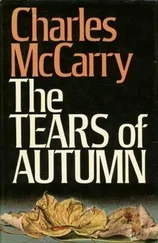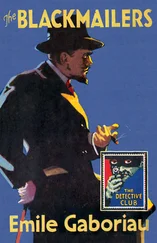“You won’t know until they try, will you?”
“Perhaps not even after.”
“Intrigue, Miernik. Everywhere intrigue.”
Miernik paid no attention to this remark. “Most of all,” he said, “there is another factor.” He fell into a silence.
(I might say at this point, for the benefit of those who sit inside, reading these reports-there is someone like that, isn’t there?- that there is a certain amount of strain involved in holding conversations with people like Miernik. Two sets of reactions operate at all times. I pretend to like him, for your purposes. I do like him, for reasons that have nothing to do with your requirements. I lie to him, for your reasons. And I lie to him so that he will not suspect that I am lying to him. I assume that he feels and does the same. In Miernik’s case, all this would be more bearable if he did not take himself so seriously. Of course, I don’t know whether he is taking himself seriously, or whether he is just pretending to do so in the name of professionalism. If he is a professional, then this narrative is laughable. If not, it’s not.)
“There is my sister,” Miernik said.
“What’s her name?” I asked this quickly.
Miernik hesitated. You will think that he was selecting a name that he’ll be sure to remember the next time I ask. It might have been that, or it might have been his normal citizen-of-a-police-state reaction: a man who asks for information, even innocent information, is to be mistrusted.
“Zofia,” he said.
“Where is she?”
“In Warsaw, at the university. She is studying art history.”
“She is alone?”
“You know that my parents are dead. She is alone.”
“Can’t she come out? Pretend to be going on vacation?”
“One passport to a family is the rule. I have ours.”
“Would they bother her if you didn’t go back?”
“Perhaps not immediately. Eventually, if they want me badly enough. She is my only relative. She is younger. I feel a great deal for her.”
“Tadeusz, I don’t think we can settle this before lunch. We ought to start walking toward the restaurant.”
“It helps to talk about it. You would like Zofia. We don’t look alike.”
“That’s reassuring.”
Miernik laughed for the first time. He does not joke about his appearance (his looks distress him, I think), so I assume that his laughter indicated, or was supposed to indicate, affection for his sister.
“She thinks I am too protective. I interviewed her boyfriends when she was sixteen. Before that, in the war, we all tried to make her feel as safe as possible. The winter that the Russians came, the Germans retreated in a hurry. In a snowbank around the corner from our house they left two dead German soldiers. They were just boys. Their faces were frozen-eyes open, mouths open, tongues very swollen. They lay in the snow on our path to school. During the entire winter, I took Zofia by a longer way so she wouldn’t see the dead Germans. I would go out every morning to see if they were gone. They were not. The Russians wouldn’t bother with them, the Poles would not touch them. They were not hauled away until spring, when they might smell. Zofia was angry with me over all that extra walking. I never told her why we went the long way to school. Why should a little girl know?”
“Have you ever explained?”
“No. I suppose she’s forgotten. She was only seven.”
We walked through the park again, Miernik with his hands behind him like a monk. I put my hand on his shoulder.
“Do you want to talk about this later?”
“Yes. Your lack of sympathy does me good.”
“You can call me.”
Miernik said that he would.
You see the alternatives in this situation, I know. But I will list them anyway:
1) Miernik’s story is true, and he really is deciding whether to go back to Poland and, perhaps, to prison. If he doesn’t go back, he’ll have to ask for asylum in Switzerland.
2) He is in touch with the Poles (or the Soviets), and is under instructions to defect, and believes that I can put him in contact with the right Americans.
If (1), it’s a sad story. If (2), it’s very elaborate, hence very Polish.
Let me know how you want to handle this.
5. INTERNAL COMMUNICATIONS FROM THE FILES OF WRO.
Personnel
The Director General wishes to know the date of expiry of the passport of Mr. Tadeusz Miernik.
19 May N. COLLINS
First Assistant
Mr. Collins
The passport of Mr. T. Miernik, issued by the Polish Consulate in Bern, expires on 2 July. As the passport is not renewable, Mr.
Miernik must apply for a new one before the date of expiry.
19 May T. RASTIGNY
Personnel
6. REPORT BY LÉON BROCHARD, A FRENCH NATIONAL EMPLOYED BY THE WORLD RESEARCH ORGANIZATION, TO A FRENCH INTELLIGENCE SERVICE (TRANSLATION FROM FRENCH).
There was a curious incident today (19 May) at the lunch that has become a weekly habit for Collins, the Englishman; Christopher, the American; Miernik, the Pole; el Khatar, the Sudanese; Khan, the Pakistani; and myself. The central figure in this incident was Miernik, though Khatar, Khan, and Collins were also involved.
Miernik and Christopher arrived together at the restaurant. The rest were already there. The talk was lively as usual. Khatar told an amusing story about Fenwick, the Englishman who is an Assistant Director General of WRO, whom he is trying to induce to call him (Khatar) “Your Royal Highness.” Khatar is a prince of a Muslim sect in his country. Khatar’s family still keeps slaves, including apparently some intellectuals; he says that Fenwick has the makings of a useful slave. “Fenwick would be quite happy with us as a slave, all our slaves are,” said Khatar. “But first he must be trained not to call me ”my dear chap.”’
Miernik seized on this bit of frivolity with great resentment. He read Khatar a lecture on the evils of slavery. “Did you learn nothing at Oxford?” Miernik demanded.
“I learned that it is inconvenient to be without slaves,” said Khatar.
Even Khatar, who usually is oblivious to the behavior of others, was taken aback by the ferocity of Miernik’s attack. The Pole would not stop talking. It seems that Khatar’s father, for political reasons, recently married his son, in absentia, to the thirteen-year-old daughter of another black prince. The father sent this new bride by airplane to Geneva. She is now living in Khatar’s apartment.
Miernik, going there for dinner last week, was introduced to the girl. Khatar requires her to sit on the floor beside the table, and he tosses her scraps from his plate. Apparently this is the only food she receives. Miernik upbraided him for this behavior.
“Be cheerful, Miernik,” said Khatar. “She will go back to Sudan as soon as I can bring myself to consummate the marriage.”
Collins said, “Look, Kalash, why don’t you send your Swiss girl away for an evening, and do the deed? Then you won’t be offending old Miernik when he comes to dinner.”
Khatar, who regards himself as quite the most handsome black in the world, laughed. “She is circumcised,” he said. “It’s a dry experience, my dear Nigel. When I have her, I shall have to be prepared by Nicole. But once she has prepared me, Nicole will not let me go.
At this, Miernik threw down his napkin and left the table. He strode to the door, then came back, red in the face. “Kalash,” he cried, “you are a disgusting savage!”
Khatar was quite undisturbed. “It seems that Miernik has no respect for my culture,” he said.
“None whatever, if you are its product,” said Miernik, and left the restaurant. There were actual tears in his eyes.
Читать дальше












